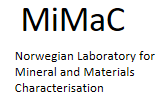Partners - MiMaC
NTNU - Norwegian University of Science and Technology
NTNU is the largest university in Norway today, with a history dating back to 1910, and a tradition going back to 1767 and the Royal Norwegian Society of Sciences and Letters (DKNVS).
NTNU’s social mission is to create knowledge for a better world and deliver solutions that can change and improve everyday life.
Two researchers employed at NTNU have received Nobel Prizes: May-Britt Moser and Edvard Moser (2014). In addition, the laureates Ivar Giæver (1973) and Lars Onsager (1968) were educated at the Norwegian Institute of Technology (NTH), which was one of NTNU's predecessors.
NTNU is headquartered in Trondheim, with campuses in Gjøvik and Ålesund. NTNU has:
- Eight faculties in addition to units such as the NTNU University Museum and the NTNU University Library
- About 39 700 students
- 6 900 full-time equivalent staff
NTNU has the main responsibility for higher education in technology in Norway, and is the country’s premier institution for the education of engineers. The university offers several programmes of professional study and a broad academic curriculum in the natural sciences, social sciences, teacher education, humanities, medicine and health sciences, economics, finance and administration, as well as architecture and the arts.
Research forms part of the activities through a variety of projects and programmes in addition to specialized centres. NTNU’s strategic commitment to three enabling technologies in 2011–2020 include biotechnology, ICT and nanotechnology. Enabling technologies involve interdisciplinary basic research that contributes to developing new industries, products and solutions in most sectors of society.
The Department of Materials Science and Engineering is Norway's leading institution for materials science and engineering.
The department includes a range of fields in physical and process metallurgy, with a focus on light metals and silicon, including solar-grade silicon, corrosion, electrochemical energy technology, inorganic materials, ceramics and nano-structured materials.
The department has several BSc and MSc programmes including Bachelor in Chemical Engineering, Bachelor in Materials Engineering, Bachelor in Oil and Gas Technology, Master in Materials Technology and Master in Chemical Engineering and Biotechnology, the latter with spesialisation in Materials Chemistry and Energy Technology. We graduate approximately 70 bachelors and 60 masters annually.
There is a substantial research activity in our department with more than 100 active research projects, around 100 active PhD students and about 25 postdocs. Most of our research is of an experimental nature and we are heading or are active partners/users of several laboratory infrastructures as NTNU NanoLab, NorTEM, RECX, MANULAB, and others. Our main research partner is SINTEF, but we are also collaborating extensively with other research orgainsations, universities and industry partners worldwide.
The Department of Geoscience and Petroleum has a national responsibility for higher education in mineral production and is the leading institution in applied geosciences and petroleum in Norway
As part of NTNU’s Faculty of Engineering, the department (IGP) has six research groups within
geosciences and petroleum, focusing on Engineering Geology; Geology; Geophysics; Mineral Production and HSE; Reservoir Engineering and Petrophysics; and Well Construction and Prod uction Systems.
The department offers education at the BSc, MSc and Phd levels within all of its major research fields.
IGP has extensive collaboration with other universities and research institutions, and with leading industry actors.
IGP’s activities contribute to research, development, and innovation within three of NTNU’s main strategic research areas – energy, sustainability, and oceans. With a staff comprising of over 200 people in scientific, technical, and administrative positions, the department is host for, and a partner in, a number of large national and international research projects. As part of the supporting structure for its activities, IGP is responsible for 14 laboratories, mechanical-, and electronic workshops. For more information, visit https://www.ntnu.edu/igv/research.

NGU - Geological Survey of Norway
NGU (Norges geologiske undersøkelse), is a Norwegian government agency responsible for geological mapping and research. The agency is located in Trondheim and has ca. 200 employees. It is subordinate to the Norwegian Ministry of Trade, Industry and Fisheries. NGU's main work is related to collecting, processing and storing knowledge related to the physical, chemical and mineralogical characteristics of the country’s bedrock, mineral resources, and groundwater resources. Important areas in addition to mainland Norway include the Arctic, Svalbard and the continental shelf. NGU provides maps and geological information in national databases.
SINTEF
SINTEF has about 2000 employees and is the largest independent contract research organization in Scandinavia and the 4th largest in Europe. Established in 1950, SINTEF is a broadly based, not-for-profit multidisciplinary research institute that possesses international top-level expertise in technology, medicine and the social sciences. SINTEF Industry is a contract-based institute offering high levels of expertise in the fields of materials technology, advanced materials and nanotechnology, applied chemistry and biotechnology. We work closely with global players in the oil and gas, green energy and process industry sectors. Our research activities include advanced material characterization.
The Research Council of Norway
The Research Council of Norway serves as the chief advisory body for the Government and government ministries on research policy issues, and distributes roughly NOK nine billion to research and innovation activities each year.

The Research Council of Norway is acknowledged for the support to the Norwegian Laboratory for Mineral and Materials Characterisation, MiMaC, project number 269842/F50.



